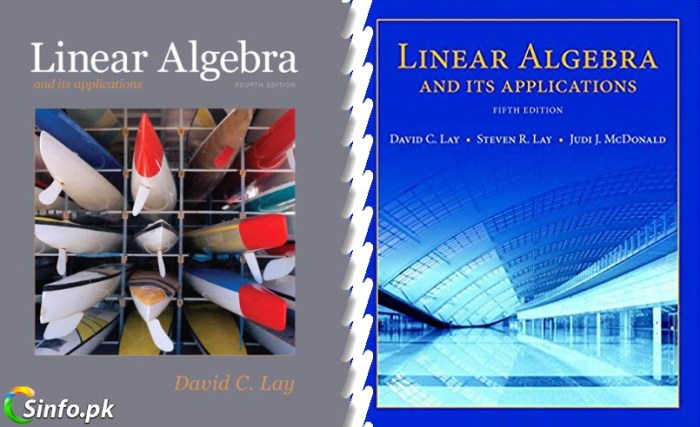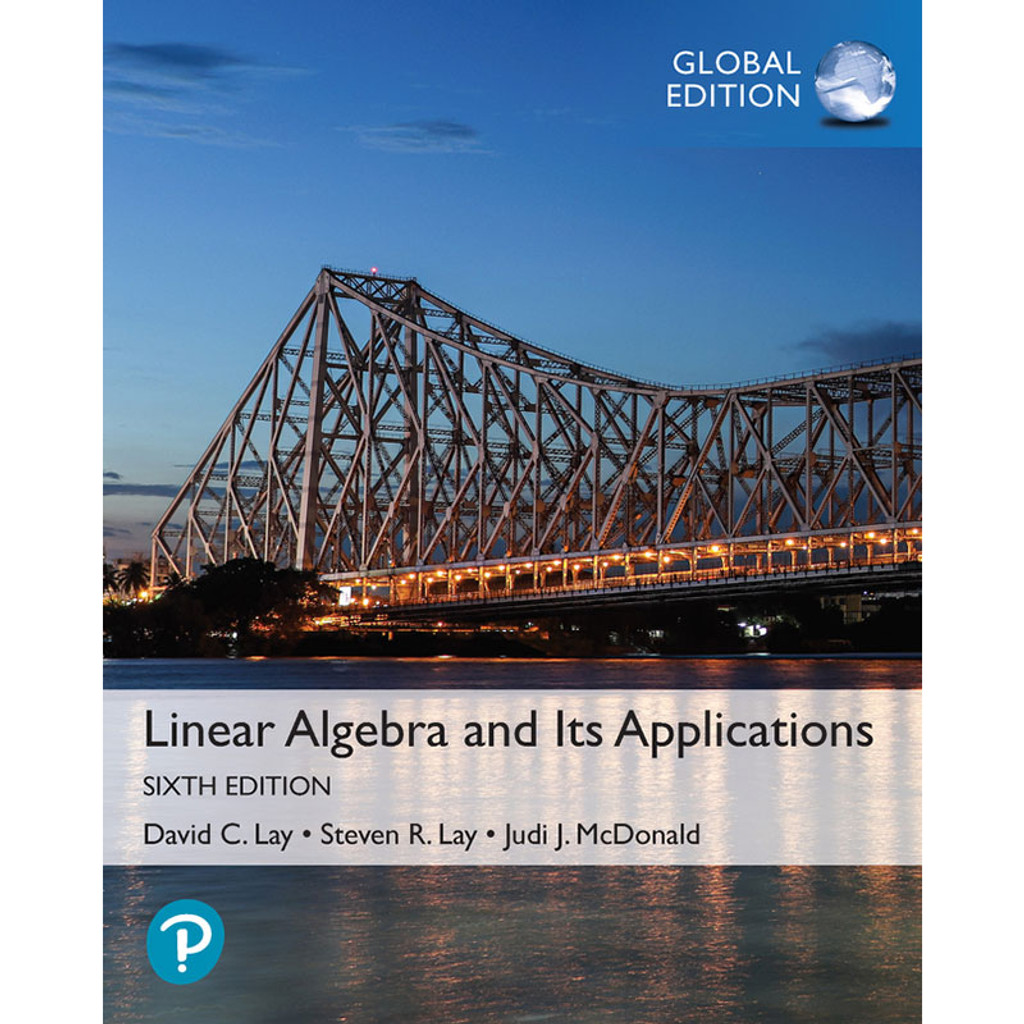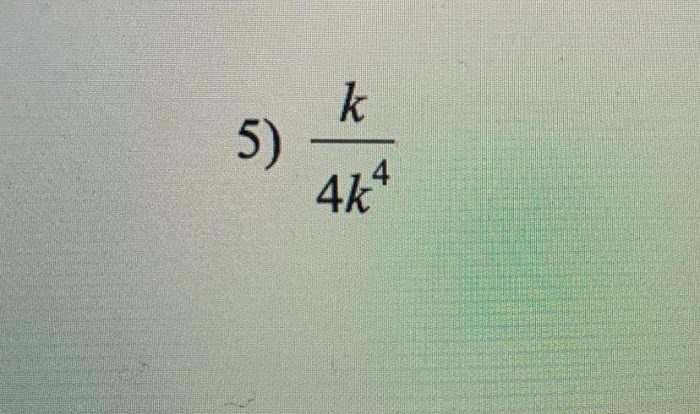Linear algebra and its applications sixth edition – Linear Algebra and Its Applications, Sixth Edition, is a comprehensive and accessible introduction to the fundamental concepts and applications of linear algebra. This classic textbook has been updated and revised to include the latest developments in the field, providing students with a valuable resource for learning and understanding linear algebra.
The sixth edition of Linear Algebra and Its Applications includes several key updates and revisions, including new exercises and applications, as well as a new chapter on computational methods. These updates make the book even more valuable for students and practitioners who need to understand the theoretical foundations of linear algebra and its practical applications.
Overview of Linear Algebra and Its Applications, Sixth Edition

The sixth edition of the textbook “Linear Algebra and Its Applications” is a significant milestone in the field of linear algebra. Originally published in 1968, this textbook has become a classic and is widely considered one of the most comprehensive and authoritative introductions to the subject.
The sixth edition builds upon the success of previous editions while incorporating key updates and revisions. It retains the clear and concise writing style that has made the book a favorite among students and instructors, while also introducing new content and pedagogical features to enhance the learning experience.
Key Updates and Revisions, Linear algebra and its applications sixth edition
- Updated content to reflect the latest developments in linear algebra, including new results and applications.
- Revised exercises and examples to improve student understanding and engagement.
- Incorporation of technology, such as MATLAB and Python, to enhance the computational aspects of the book.
- Improved organization and flow to make the material more accessible and easier to follow.
Core Concepts and Theorems: Linear Algebra And Its Applications Sixth Edition
Linear algebra is the study of vector spaces, matrices, and linear transformations. These concepts are fundamental to many areas of mathematics, science, and engineering.
Some of the most important theorems in linear algebra include:
Rank-Nullity Theorem
The rank-nullity theorem states that the rank of a matrix plus the nullity of the matrix is equal to the number of columns in the matrix.
Fundamental Theorem of Linear Algebra
The fundamental theorem of linear algebra states that every finite-dimensional vector space has a basis.
Applications of Linear Algebra
- Computer graphics
- Physics
- Engineering
- Economics
Computational Methods

Computational methods are essential for solving large-scale linear algebra problems. Some of the most commonly used computational methods include:
Gaussian Elimination
Gaussian elimination is a method for solving systems of linear equations by reducing the system to an equivalent system in triangular form.
Matrix Factorization
Matrix factorization is a method for decomposing a matrix into a product of simpler matrices.
Efficiency and Accuracy
The efficiency and accuracy of computational methods are critical for solving large-scale linear algebra problems. Researchers are constantly developing new methods to improve the efficiency and accuracy of these methods.
Theoretical Foundations

The theoretical foundations of linear algebra are based on the concept of abstract vector spaces and linear operators.
Abstract Vector Spaces
An abstract vector space is a set of vectors that can be added and multiplied by scalars.
Linear Operators
A linear operator is a function that maps vectors in one vector space to vectors in another vector space.
Importance of Theoretical Concepts
The theoretical concepts of linear algebra are important for understanding the structure and properties of linear systems.
Connections to Other Branches of Mathematics
Linear algebra has connections to many other branches of mathematics, including:
- Analysis
- Geometry
- Topology
Educational Value
The textbook “Linear Algebra and Its Applications, Sixth Edition” is an excellent resource for students and instructors of linear algebra.
The book provides a comprehensive and accessible introduction to the subject, with clear explanations and numerous examples.
The book also includes a variety of pedagogical features, such as:
- Exercises and problems to reinforce the concepts
- Historical notes to provide context
- Computer exercises to enhance the computational aspects of the book
Essential Questionnaire
What are the key updates and revisions in the sixth edition of Linear Algebra and Its Applications?
The sixth edition of Linear Algebra and Its Applications includes several key updates and revisions, including new exercises and applications, as well as a new chapter on computational methods.
What are the benefits of using Linear Algebra and Its Applications, Sixth Edition, as a textbook?
Linear Algebra and Its Applications, Sixth Edition, is an ideal textbook for undergraduate and graduate courses in linear algebra. The book’s clear and concise explanations, coupled with its wealth of examples and exercises, make it an essential resource for students and practitioners who need to understand the theoretical foundations of linear algebra and its practical applications.
